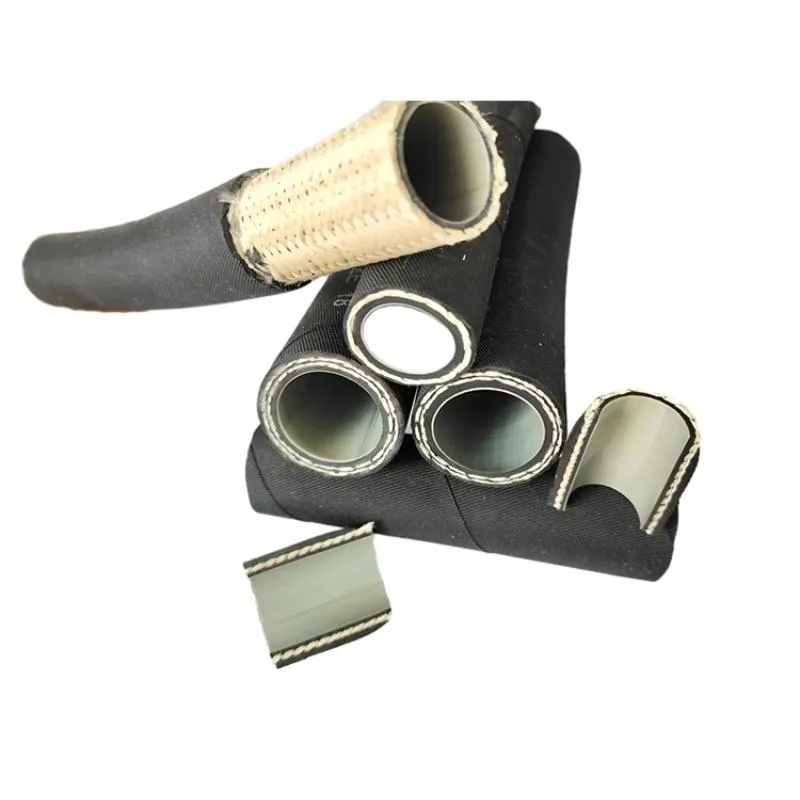High-Pressure Fuel Hose Compatible with Fuel Injection Systems for Optimal Performance
Oct . 13, 2024 17:34 Back to list
High-Pressure Fuel Hose Compatible with Fuel Injection Systems for Optimal Performance
Fuel Hose for Fuel Injection An Essential Component in Modern Engines
In the realm of automotive technology, the fuel injection system plays a pivotal role in the performance and efficiency of internal combustion engines. At the heart of this system lies a critical component—the fuel hose. Understanding the importance of fuel hoses specifically designed for fuel injection can provide valuable insights into maintaining engine performance and longevity.
What is a Fuel Hose?
A fuel hose is a flexible tube designed to transport fuel from the tank to the engine. In vehicles equipped with a fuel injection system, the fuel hose must withstand higher pressures than those used in carbureted engines. This is essential because fuel injection systems operate at pressures typically ranging from 30 to 80 psi, depending on the engine type and load conditions.
Types of Fuel Hoses
Fuel hoses come in various types, each designed for specific applications. In the context of fuel injection, the most commonly used hoses are constructed from high-quality materials like rubber reinforced with layers of synthetic fibers or metal. These materials are chosen for their ability to withstand both the pressure of the fuel system and the corrosive properties of modern fuels, which may contain ethanol and other additives.
For fuel injection systems, there are primarily two types of hoses low-pressure and high-pressure hoses. Low-pressure hoses are typically used in return lines, while high-pressure hoses are essential for delivering fuel from the pump to the injectors. The choice of the hose must align with the operating conditions of the specific vehicle.
Importance of Quality Fuel Hose
Using high-quality fuel hoses in a fuel injection system is crucial for several reasons
fuel hose for fuel injection

1. Safety A compromised fuel hose can lead to leaks, which not only reduce engine efficiency but can also pose significant fire hazards. Ensuring that the hose is manufactured to meet or exceed industry standards is essential for safe vehicle operation.
2. Performance Fuel hoses that are designed for high-pressure applications minimize the risk of kinks or collapses that can restrict fuel flow. This is vital for maintaining the performance of the engine, as any interruption in fuel delivery can lead to poor acceleration and overall reduced engine power.
3. Durability High-quality fuel hoses are designed to endure extreme conditions, including fluctuations in temperature and the corrosive nature of various fuels. A durable fuel hose will resist wear and tear, extending its service lifespan and reducing the need for frequent replacements.
4. Compatibility As fuel formulations change, particularly with the introduction of biofuels and additives, it is imperative that fuel hoses remain compatible with these new fuels. Using hoses specifically designed for fuel injection ensures that they will handle the chemical properties of modern fuels without degrading.
Maintenance and Replacement
Regular maintenance and timely replacement of fuel hoses are critical to the overall health of the fuel injection system. Signs that a fuel hose may need to be replaced include visible wear, soft spots, leaks, or swelling. Given the potential consequences of a failing fuel hose, motorists should consult their vehicle’s manual for specific guidelines regarding inspection intervals and replacement recommendations.
Conclusion
In summary, the fuel hose is a seemingly small but essential component of the fuel injection system. Its role in safely and efficiently delivering fuel to the engine cannot be overstated. By understanding the types, importance, and maintenance of fuel hoses, vehicle owners can ensure that their engines perform optimally and safely, providing a smoother and more reliable driving experience. Whether you’re a seasoned mechanic or a car enthusiast, paying close attention to this vital component will yield significant dividends in performance and safety.
